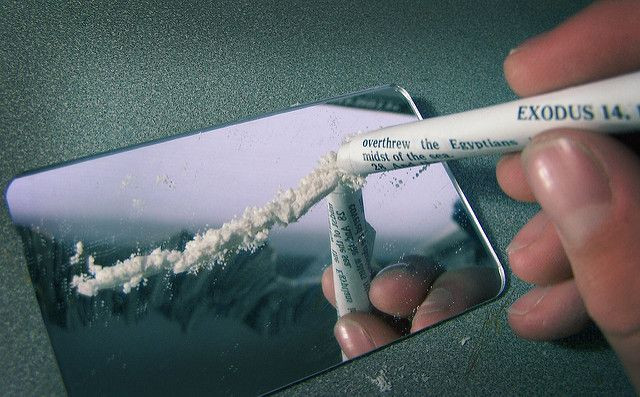Are Humans Hard-Wired For Addiction? Cocaine Users More Motivated Than Other People

Reward is at the heart of all human effort, some scientists (and a few philosophers) believe. Our lives are based on deciding which prizes we want to aim for and then taking steps to achieve them, with possible heartbreak strewn across our paths along the way. However, in the arena of rewards, all of us may not be equal. The chief area of difficulty for addicts — it may even be hard-wired into their brains, say scientists at the University of Rochester Medical Center.
“Task monitoring has been shown to be nearly universally impaired in addiction,” wrote the researchers in their study. For example, users of cocaine find it difficult to see and respond to their mistakes. Behavior control is another problem they often face. And, like thrill seekers, people who dip into the coke dust too often find less enjoyment in everyday experiences. Yet, only about 10 percent of people who try cocaine go on to become habitual users. Is there something different about the wiring of their brains…and might the difference be linked to rewards?
"Yes," hypothesized Dr. John Foxe, chair of the department of neuroscience and senior author. He and his colleagues investigated.
Desire and Damage
The researchers designed an experiment based on the three separate stages of the rewards process: Reward anticipation (desire); task monitoring (likelihood of receiving a reward); and reward consummation (sense of achievement). Then, they recruited 23 active cocaine users and an equal number of people without a drug history. Next, all the participants played a computer game while rigged up to an EEG, recording their brain activity. Before each round of fun, the program would flash an indication of the participant’s probability of success. After each task, the participants either won or lost points, which could be turned in for gift cards.
Here’s the catch — the game was rigged so each participant experienced the same number of wins and losses. Meanwhile, the researchers observed the electrical activity occurring in each participant's brain in response to reward anticipation, task monitoring, and reward consummation.
What did the researchers find? Cocaine users showed a greater response than non-drug users in the anticipation phase; this suggests they are highly motivated to achieve. At the same time, the drug-users showed less capability of recalibrating their performance to improve their chance of success and they also showed a much lower response to winning.
Despite wanting a reward more than others, cocaine users enjoy it less and make more mistakes in getting there. The researchers say the key question is whether these brain differences were present before they began using drugs or after; if the differences are there from the start, it could be possible to identify children who are at risk for addiction.
Either way, the findings may steer researchers toward new approaches for treating addiction. Begin with the brain.
Source: Morie KP, De Sanctis P, Garavan H, Foxe JJ. Regulating task-monitoring systems in response to variable reward contingencies and outcomes in cocaine addicts. Psychopharmacology. 2016.
Published by Medicaldaily.com



























